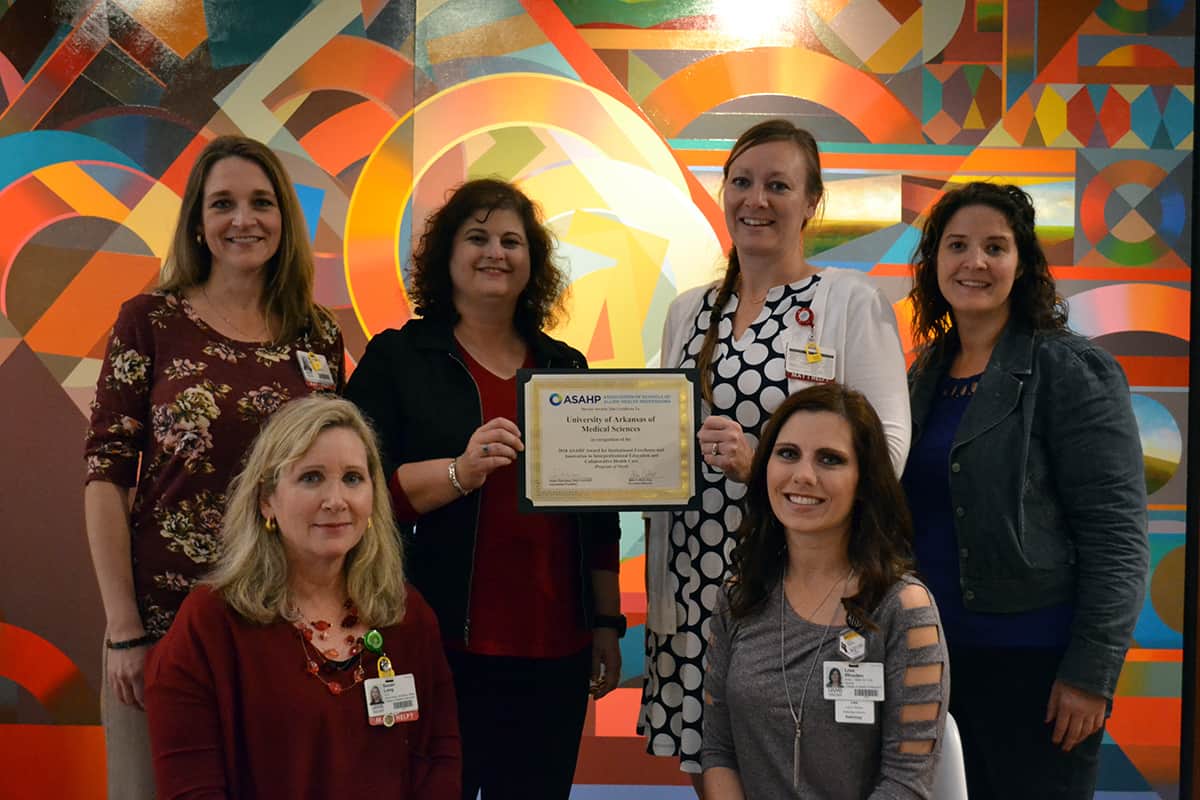UAMS Recognized for Interprofessional Education Program
| Oct. 31, 2018 | On the strength of its interprofessional education curriculum, UAMS recently was identified as a Program of Merit by the Association of Schools of Allied Health Professions (ASAHP).
The award came as part of the association’s Award for Institutional Excellence and Innovation in Interprofessional Education and Collaborative Health Care contest. Since fall 2015, all UAMS students must complete 25 hours of interprofessional education activities to graduate.
“UAMS developed its interprofessional education program to support the triple aim of improving the patient care experience, improving the health of those we serve and learning how to reduce the cost of care,” said UAMS Chancellor Cam Patterson, M.D., MBA. “I am delighted that the Association of Schools of Allied Health Professions applauds our efforts and sees the difference they are making as we educate the next generation of health care professionals in Arkansas.”
The award was presented Oct. 10 during the ASAHP convention in St. Petersburg, Florida. Susan Long, Ed.D., dean of the College of Health Professions who entered UAMS into the contest, and faculty members Amber Teigen, M.M.Sc., and Cherika Robertson, M.Ed., from the Physician Assistant and Medical Laboratory Sciences programs, respectively, were on hand to accept the award. Faculty members Melissa Clark, Pharm.D., Lisa Rhoden, M.Ed., and Layla Simmons, B.S., from the Physician Assistant, Radiologic Imaging Sciences and Diagnostic Medical Sonography programs, respectively, also worked on the application.
UAMS’ interprofessional education program uses a five-pillar approach — student curriculum, faculty development, collaborative practice, research/scholarship and philanthropy. The UAMS Office of Interprofessional Education (IPE), which developed the UAMS IPE curriculum, was established in 2012 and operates within the UAMS Division of Academic Affairs.
“We worked hard to ingrain interprofessional education as a vital part of the academic culture at UAMS,” said Stephanie Gardner, Pharm.D., Ed.D., senior vice chancellor for academic affairs and provost. “We believe students from all of our programs will become better health professionals by learning about, from and with one another through our IPE curriculum — ultimately benefiting the patients they treat and communities they serve.”
